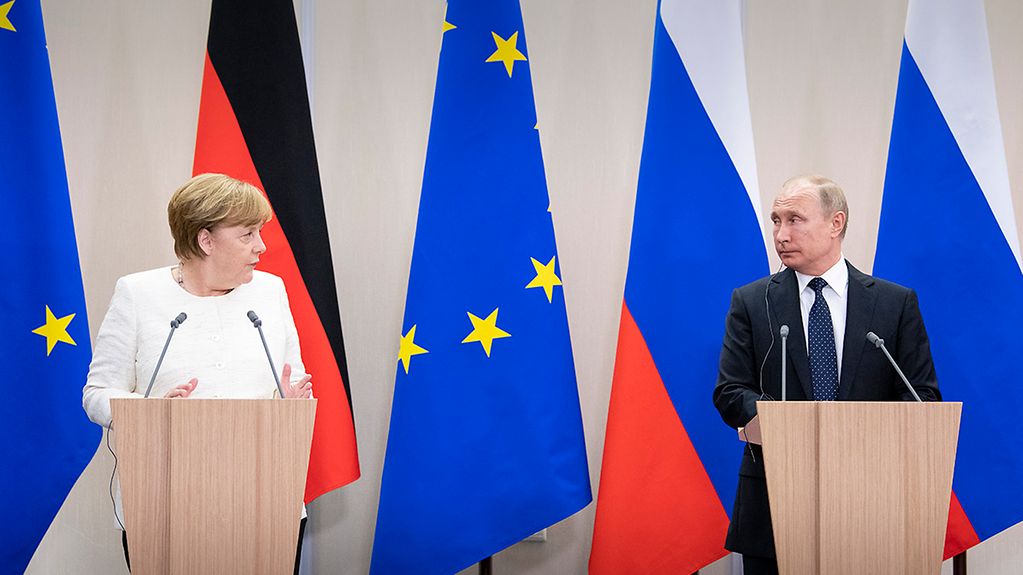Angela Merkel visits Vladimir Putin
At a meeting with President Vladimir Putin in Sochi, Chancellor Angela Merkel has called for the implementation of the political decisions laid out in the Minsk agreements. There is a will, also on the part of the EU, to uphold the existing nuclear deal with Iran, while also discussing open questions including Iran’s missile programme.

We have a strategic interest in good relations with Russia, said the Chancellor
Photo: Bundesregierung/Bergmann
After her meeting with Russian President Vladimir Putin, Chancellor Angela Merkel stressed how important it is to engage in an open exchange of ideas, especially where there are differences of opinion. German-Russian cooperation has to withstand major differences, she said – but if we are going to resolve problems, we have to talk to one another.
This also relates to the freedom of the press. Angela Merkel reported that she had made it clear that this is vitally important to the German government. She stated that she had raised several individual cases and asked Putin to "reconsider these".
UN troops requested for eastern Ukraine
With a view to the situation in Ukraine, Angela Merkel said that the Minsk agreements are the only basis on which we can work. The serious ceasefire violations in eastern Ukraine show how important it is to station UN troops there. On this point, she reported, she is in agreement with President Vladimir Putin. The ministers of foreign affairs are to continue to work on this project. If they manage to stabilise the situation, the next step could be to "realise the political steps agreed in Minsk".
The Nord Stream II project, a new gas pipeline across the Baltic Sea from Russia to Germany, is a business project said the Chancellor, but it does impact on Ukraine. The German government is convinced that even after Nord Stream II is built, Ukraine must continue to play a part as a transit nation in bringing gas to Europe. Germany, she said, is willing to engage in order to achieve this objective.
Nuclear deal with Iran should be upheld
In the Middle East, said Angela Merkel, the situation has become even more complicated in the wake of the USA’s withdrawal from the nuclear agreement with Iran. She agrees with her EU colleagues, however, that Europe will remain committed to this agreement and will continue to support it. In terms of Iran’s nuclear programme, the agreement, said the Chancellor, gives "more security, more control and particularly more transparency".
But there are also issues "that must be discussed with Iran". This includes Iran’s programme to develop ballistic missiles, but also the question of what happens once the individual elements of the nuclear deal expire.
Syria – reform processes must gain momentum
With a view to Syria, the Chancellor pointed out that the German government continues to fully support the mediation efforts of the UN Special Envoy, Staffan de Mistura. The constitutional reform process already agreed must now actually move forward. This process can be underpinned by the individual parties to the conflict appointing their representatives within the process.